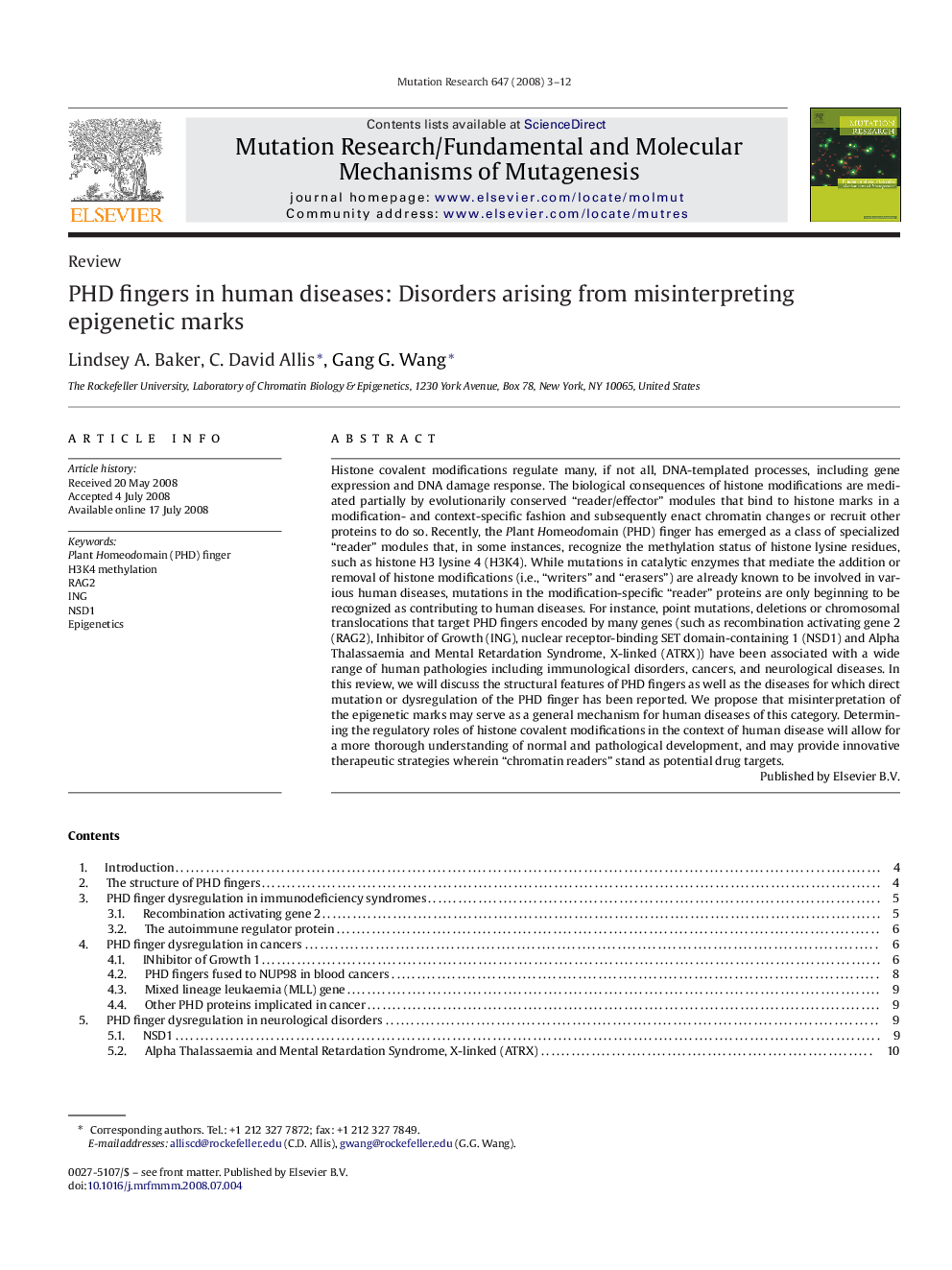| کد مقاله | کد نشریه | سال انتشار | مقاله انگلیسی | نسخه تمام متن |
|---|---|---|---|---|
| 2147105 | 1548393 | 2008 | 10 صفحه PDF | دانلود رایگان |

Histone covalent modifications regulate many, if not all, DNA-templated processes, including gene expression and DNA damage response. The biological consequences of histone modifications are mediated partially by evolutionarily conserved “reader/effector” modules that bind to histone marks in a modification- and context-specific fashion and subsequently enact chromatin changes or recruit other proteins to do so. Recently, the Plant Homeodomain (PHD) finger has emerged as a class of specialized “reader” modules that, in some instances, recognize the methylation status of histone lysine residues, such as histone H3 lysine 4 (H3K4). While mutations in catalytic enzymes that mediate the addition or removal of histone modifications (i.e., “writers” and “erasers”) are already known to be involved in various human diseases, mutations in the modification-specific “reader” proteins are only beginning to be recognized as contributing to human diseases. For instance, point mutations, deletions or chromosomal translocations that target PHD fingers encoded by many genes (such as recombination activating gene 2 (RAG2), Inhibitor of Growth (ING), nuclear receptor-binding SET domain-containing 1 (NSD1) and Alpha Thalassaemia and Mental Retardation Syndrome, X-linked (ATRX)) have been associated with a wide range of human pathologies including immunological disorders, cancers, and neurological diseases. In this review, we will discuss the structural features of PHD fingers as well as the diseases for which direct mutation or dysregulation of the PHD finger has been reported. We propose that misinterpretation of the epigenetic marks may serve as a general mechanism for human diseases of this category. Determining the regulatory roles of histone covalent modifications in the context of human disease will allow for a more thorough understanding of normal and pathological development, and may provide innovative therapeutic strategies wherein “chromatin readers” stand as potential drug targets.
Journal: Mutation Research/Fundamental and Molecular Mechanisms of Mutagenesis - Volume 647, Issues 1–2, 1 December 2008, Pages 3–12